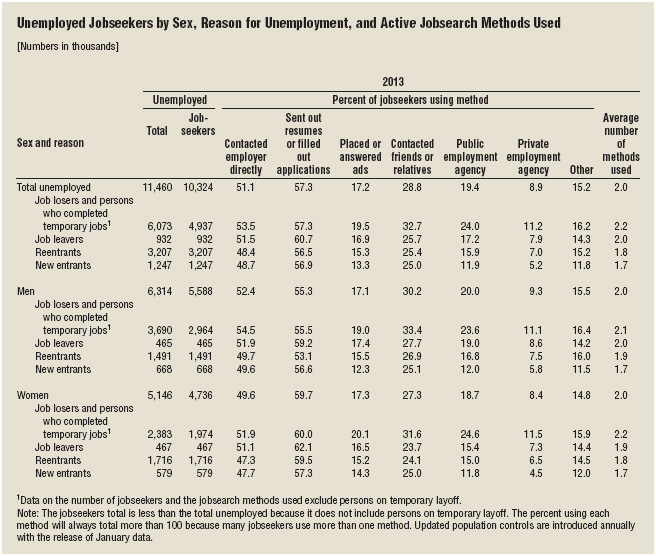What Is a Recruiter?
A recruiter searches for and evaluates candidates to fill job openings. A recruiter does not actually hire candidates but instead identifies and assembles a group of potential job candidates for an employer to consider. Sometimes referred to as a personnel recruiter, employment specialist, recruitment specialist, or placement specialist, a recruiter generally works as part of a company's human resources
department, for a recruiting firm or employment agency, or as a private consultant.
Recruiters tend to specialize by industry or classification. For example, there are recruiters focused on computer services and software development, the fashion industry, and the medical industry, as well as recruiters who specialize in filling sales positions. Some recruiters fill jobs in particular geographic regions; others work nationally or even globally. The most familiar type of recruiter is probably the executive recruiter. An executive recruiter focuses on filling senior management positions and is sometimes known as an executive search recruiter or a headhunter.
How Long Have Recruiters Been Around?
The U.S. recruiting industry as we know it likely began in the 1940s with World War II (1939–45). As workers left their jobs to join the war effort, companies were left shorthanded. Employment agencies rose up to help find candidates to fill the empty positions. When World War II ended, soldiers returned from abroad with new skills and knowledge, and employment agencies began helping veterans secure jobs that took advantage of their newly acquired skills. Companies needed innovative and skilled workers, especially to work in the relatively new technology industry, and recruiters were able to provide worthy candidates. Employment agencies provided a useful bridge between job seekers and companies.
Recruiting agencies began to focus more heavily on the needs of hiring companies rather than job seekers beginning in the 1970s. Companies that were experiencing expansion and prosperity turned to recruiting companies to fill the need for more staff. The Internet and personal computers were not in wide use at this time, so recruiters typically used bulletin boards, advertisements in periodicals, and word of mouth to seek out job candidates.
How Does a Recruiter Work?

Companies hire recruiters to find candidates to fill job openings. Recruiters work with the companies to determine the ideal qualities and skills needed in the pool of potential employees. Recruiters then draw on their contacts, relationships, and research abilities to find candidates. They also tap into various professional networks and scan trade publications, directories, and newspapers. Recruiters may also research candidates through online job boards and social media and career websites. Job seekers can post a résumé on such sites so recruiters and companies can view their qualifications online.
After recruiters have conducted initial screenings, they contact potential candidates. To maintain confidentiality, recruiters usually do not reveal their clients to the potential candidates at this stage. Recruiting agencies then typically conduct further screenings of potential candidates. These may be conducted in person, by telephone, or via video conference. Recruiters also may conduct background checks, check references, or administer relevant aptitude tests
. Recruiters further narrow the pool of candidates through interviews until a highly qualified group of candidates has been selected. These candidates are then introduced to the hiring company. At this point the company will review the candidates and decide whom, if anyone, it will interview.
Recruiters do not contact potential employees unless there are available job openings, but you can take steps to boost your visibility and increase the likelihood of being included in a pool of candidates for appropriate positions. First, many recruiters accept solicitations from job seekers. In general you will want to submit a résumé and cover letter. The cover letter should describe the type of position being sought and your qualifications for such a position. The recruiter will keep this information on file until a suitable position becomes available. When a job becomes open, the recruiter will contact you to set up a conversation.
What Are Some Advantages of Working with a Recruiter?

For job seekers, working with recruiters can be beneficial in a number of ways. Because recruiters often initiate contact, identifying potential jobs may require little effort on your part. In addition, if the recruiter believes you are a good fit for a position, the recruiter can act as your advocate to the hiring company. Some recruiters will help you prepare résumés, assist with personal presentation, and provide tips on interviewing. Such assistance can improve your success rate.

A job seeker gets information from a recruiter at a career fair in Columbus, Ohio. TY WRIGHT/BLOOMBERG/GETTY IMAGES.
Recruiters often have numerous contacts within an industry that can benefit you. If you make the right impression with a recruiter, your status and profile can be elevated, and that connection can impact the number of jobs for which you may be considered.
How Can I Get the Attention of a Recruiter?
A relationship with a recruiter will often be initiated by the recruiter, but you can also contact recruiters for employment information and job leads. You can take a number of steps to make sure you will be noticed by recruiters in the field in which you are seeking employment. For example, recruiters often search for candidates who have won awards in their field or who are active participants in public forums associated with their industry, such as trade publications or online industry forums.

To attract the attention of recruiters, you should stay publicly active in the industry and related professional organizations. One way to accomplish this is through leading or participating in related panels and seminars. You can also gain attention through the contribution of blog entries and articles published on company, trade, and professional association websites. Contributing comments to relevant blogs and articles online and participating in user groups and online forums can also raise your profile for recruiters as they look for names that repeatedly come up. Job seekers wanting to appeal to recruiters can also post résumés and related information on the website LinkedIn (https://www.linkedin.com
).
Can I Approach a Recruiter Myself? How?
You can approach recruiters yourself. You can contact more than one job recruiter at a time. Not all recruiters in an industry have the same set of contacts, so it is often beneficial for job hunters to get in touch with more than one recruiter. After identifying suitable recruiters, you should send each one a résumé and a cover letter. This letter should include information about the type of positions desired and relevant background information. Details about willingness to relocate, desired salary, and why a new position is being sought may also be included.
Recruiters attend job fairs and conferences, so if you are hoping to network with recruiters you should attend employment fairs and conventions in your fields. You can also network with recruiters via professional groups and associations, as well as industry conferences, college and alumni associations, and employment agencies. You should also use your personal networks and ask business associates or friends and family for recommendations. Because recruiting agencies tend to specialize, you should make sure to target recruiters or recruiting agencies that work in relevant industries.

Prospective employees use many methods to find jobs as illustrated by this chart. ILLUSTRATION BY LUMINA DATAMATICS LTD. © 2015 CENGAGE LEARNING®. U.S. Bureau of Labor Statistics. “Household Data Annual Averages: Table 34. Unemployed Jobseekers by Sex, Reason for Unemployment, and Active Jobsearch Methods Used.” Current Population Survey. [online] from http://www.bls.gov/cps/cpsaat34.htm. Last Modified Date: February 26, 2014.

Perhaps the best place to find a recruiter is online. A basic online search for “job recruiter” will yield many results. There are websites that serve as recruiter directories, such as Find a Recruiter (http://www.findarecruiter.com
You should be honest and professional when dealing with recruiters. If a recruiter places you into a candidate pool, it means the recruiter believes you may be a good fit for the job position and will likely provide you with help and information.
Will I Have to Pay a Recruiter?
Job candidates do not pay fees to recruiters. Instead, recruiters receive compensation in different ways. Internal, or corporate, recruiters are employees of a company and are paid a salary. These companies must have enough job openings at any given time to justify employing internal recruiters and thus tend to be relatively large. External recruiters are more common. They typically work for employment or recruiting agencies and are generally paid a commission
or flat fee from the hiring companies.
Although you may be relieved to learn you do not have to pay to work with a recruiter, this arrangement can have some disadvantages for the job candidate. Because recruiters work for and are paid by businesses, they must prioritize the needs of their clients over yours. The recruiter's job is to figure out quickly and efficiently whether a candidate is a good fit for the client and not to evaluate how your application could be improved or to seek out other opportunities that might be a better fit for you. You may not get as much of a recruiter's time or advice as you might like and may find that you do not hear from the recruiter again after the position has been filled by another candidate.
How Do I Know Whether a Recruiter Is Right for Me?
Both job seekers who are looking for recruiters and candidates who have been approached by recruiters should carefully evaluate the recruiter. This evaluation should take into account the reputation and competency of the recruiter, as well as the recruiter's knowledge of and contacts with the industry in which he or she works. A recruiter should be well connected and knowledgeable about an industry or business.
How Do I Follow Up with Recruiters?
Once you have been contacted by a recruiter, it is important to respond within 48 hours to confirm interest in the position the recruiter is working to fill. Even if the position initially discussed does not seem like an ideal fit, you may want to respond to the recruiter in order to express interest in other positions the recruiter may be attempting to fill in the future. Recruiters may keep files of potential job candidates on hand in case a fitting position becomes available. After initial contact a recruiter will contact you if further information is needed for a current application or if a new opportunity appears be a good fit. Because it is vital to establish a two-way relationship with the recruiter, you should check in weekly until the hiring process is complete.
A job seeker who seeks out a recruiter should follow the same rules of thumb. Once you have met with a recruiter, you should touch base weekly via phone calls or e-mails. The bare minimum for contact with a recruiter should be once every one to two months. You should take care, however, not to contact the recruiter too frequently. If you have not heard from a recruiter about a specific position, you should leave just one message stressing how interested you are in the position.